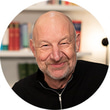“We need to now consider how we should be building on the increased influence we are able to wield”
AOP chief executive, Adam Sampson, discusses the risks and rewards of operating in the political arena in order to have the profession’s voice heard

29 June 2023
A couple of weeks ago, on 14 June, a key anniversary quietly slipped by. No – not my birthday, although that was actually the day before (and, just in case anyone feels guilty for not noticing, I really don’t think the shift from being 62 to 63 is in any way noteworthy). What 14 June marked was the fact that I have now been in post for two years.
After two years, you begin to get used to the rhythm of a role. The annual rituals – the planning and reporting cycle, the accounts and audit timetable, the AGM and meetings schedule – and the daily and weekly tasks which, as the poet puts it, “measure my life in coffee spoons.” As T.S. Eliot himself showed, we can recognise the banality of these rhythms while embracing the security they bring us.
At the AOP, those rhythms were set long before my arrival and will last long after my departure. But in the detail of the timetable of AOP events which I have inherited, there are signs, as ever, of the impact of the pandemic. Yes, 100% Optical is now back to its former glory. Yes, we now have our annual timetable of Board meetings, Council dinners and staff events. But some of the regular meetings have now gone online and other events, such as our awards ceremony, have been reshaped.
Some things have disappeared altogether. And while some will never return, others are worth reconsidering. One of those is engagement with the political party conference season. In other jobs, such as at the Prison Reform Trust and Shelter, the party conferences dominated my autumn diary – often despite my preference: spending a wet October weekend in Blackpool surrounded by political hacks and wannabe MPs is not something I would recommend to anyone. And before the pandemic, the AOP used to often appear – usually in partnership with our peers in the sector – on fringe platforms at each of the three main conferences. This no longer happens, but are they an idea worth reviving?
Pre-pandemic, the AOP – often as part of a wider sector initiative – operated a limited public affairs and political function. Like many other things that did not survive the impact of COVID and, what with a change of CEO and the need to be cautious about our spend priorities given the financial pressures on the sector, there was no rush to reinvent it. But the clear successes of our return to the public affairs arena in recent months – the political impact of The Eyes Have It initiative being the most obvious example – mean that we need to now to consider how we should be building on the increased influence we are able to wield.
Influencing politicians and policymakers is a crowded, fiercely competitive pastime, and unless you have deep pockets and/or a cause that is already at the heart of political debate, it is not easy to get traction. Yes, party conferences are the right place to go if you want to get close to decision-makers, but you can do all the right things – book the right venue, come up with an attractive roster of speakers, lay on a decent spread to bribe your audience into staying the course – and you may still end up speaking to rows of empty seats, with those few attendees present either already converted or, all too often, frankly bonkers.
Yet just because there is no guarantee of success, it does not mean you should not do it. Politicians have their own rhythms of work and 18 months before an election, now is the time to be trying to influence what the parties will say in their manifestos. If you don’t make the effort to speak, you cannot complain if you are not listened to.
It is the same with media. Most of the time, attempts to get coverage do not work and, even when they do, there is no guarantee that coverage translates to influence. But if you’re not prepared to risk failure, you’ll never achieve success. Give up and you’ll get nowhere. Plus, when it works, it is all worth it.
A couple of months ago, we issued a media release drawing a connection between the hundreds of thousands of people waiting for a secondary care eye appointment and the increased numbers of people losing their sight for eminently manageable conditions such as age-related macular degeneration. Initially, media coverage was strong but not amazing, yet as the days went on, interest grew exponentially, culminating in a primetime slot on BBC Breakfast. Some weeks later, in response to a debate initiated by Marsha de Cordova, an MP with whom we had been liaising for the past 18 months to drive home our messages, the Minister committed to increasing the role for optometrists in offering clinical services. And just the other day, officials within the system reached out to the sector asking us to help define what a standardised package of extended optometry services might look like.
None of that says that I will be automatically filling my diary with party conference fringe meetings this autumn. Committing to do more in the influencing space is one thing; making sure that what we do has a fighting chance of representing value for money is something else. But this year, unlike last, I will be holding some diary space in October just in case.


Comments (0)
You must be logged in to join the discussion. Log in